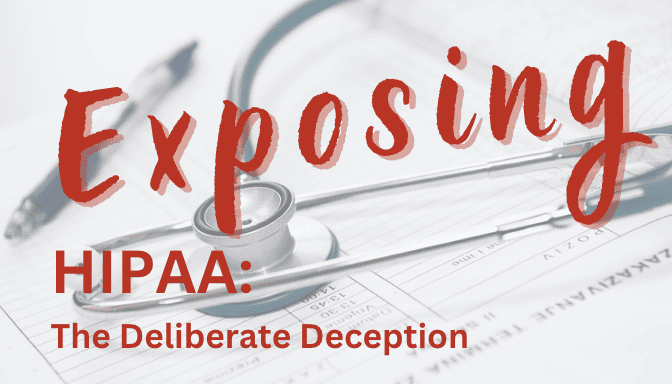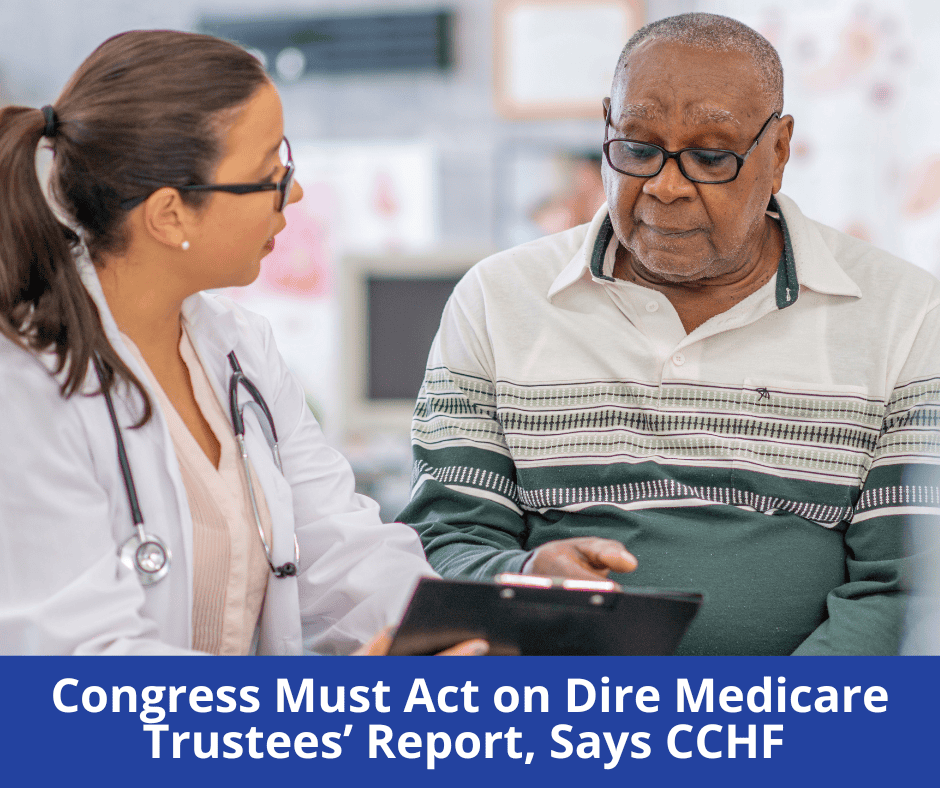CCHF’s Month-Long Educational Campaign Begins in April
ST. PAUL, Minn. — HIPAA became effective 20 years ago on April 14, 2003. For two decades, the American public has been led to believe that the “HIPAA Privacy Rule” protects their confidential medical records. To counter this false belief, the Citizens’ Council for Health Freedom will spend the month of April exposing HIPAA as a permissive data sharing rule.
“Although the HIPAA rule has been compared to a Tolstoy novel, it was not designed to protect patient privacy. It was pushed by the healthcare industry and designed to end patient privacy rights so that all those who view patient data as a gold mine could stake a claim to this confidential data for their own purposes,” said Twila Brase, RN, PHN, president and co-founder of the Citizens’ Council for Health Freedom.
Brase points to HHS statements. The Office of the National Coordinator for Health Information Technology reported, “It’s a common misconception that [HIPAA] makes it difficult, if not impossible, to move electronic health data when and where it is needed for patient care and health.” HHS says those who hold patient data (‘covered entities’) “may rely on professional ethics and best judgments in deciding which of these permissive uses and disclosures to make.”
Prior to HIPAA, clinicians, hospitals, and insurers understood their legal obligation to not share patient data. It would have been a violation of the private contract and a violation of patient privacy rights. But today, under HIPAA, data can be shared for 12 national priorities purposes and for “health care operations,” a term with a definition nearly 400 words long, without patient consent, says Brase.
“Americans have been misled about HIPAA for two decades. The truth must be told so citizens have an opportunity to protect themselves at the clinic level, by determining what they will and will not share, and through state legislatures, because state patient privacy laws trump the HIPAA rule,” says Brase.
The Standards for Privacy of Individually Identifiable Health Information, final rule published December 28, 2000; modified final rule published on August 14, 2002.
The Law: Health Insurance Portability and Accountability Act of 1996 (Public Law 104-191).
About Citizens’ Council for Health Freedom: CCHF exists to protect patient and doctor freedom. As a national, non-partisan health freedom organization, CCHF maintains a patient-centered, privacy-focused, free-market perspective.
About the Author: Twila Brase, RN, PHN is president and co-founder of Citizens’ Council for Health Freedom. She is the author of the eight-time, award-winning book, “Big Brother in the Exam Room: The Dangerous Truth About Electronic Health Records.” Her Health Freedom Minutes are heard every weekday on more than 870 radio stations. She has been quoted in Alpha News, CNSnews.org, The Daily Caller, The Epoch Times, Health Care News, Medical Economics, the Pioneer Press, the Star Tribune, The Hill, Townhall, the Wall Street Journal, and the Washington Times.










